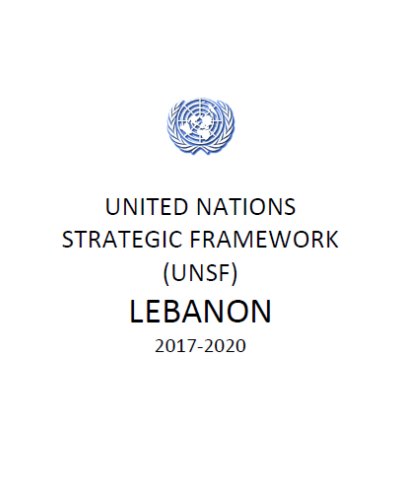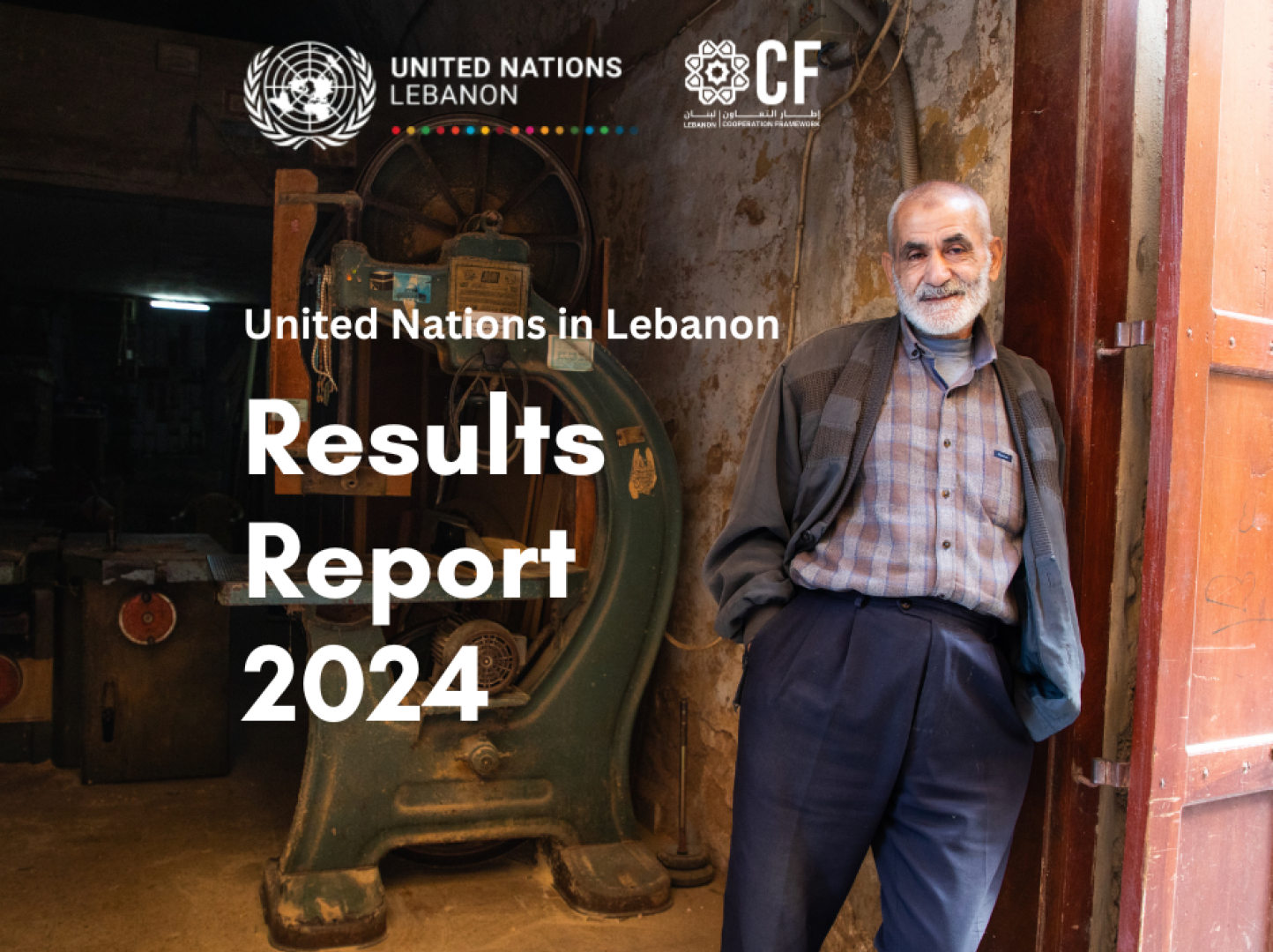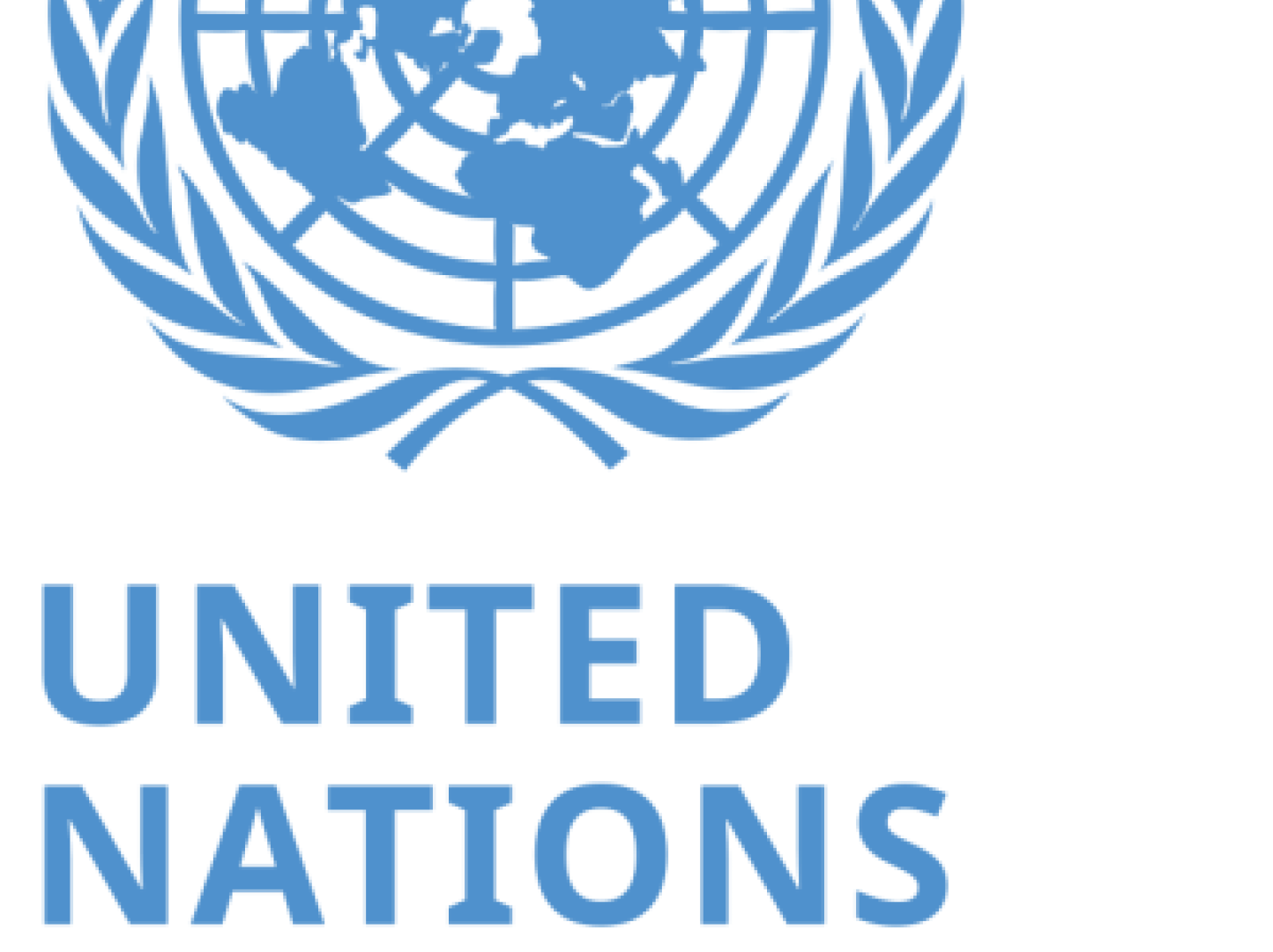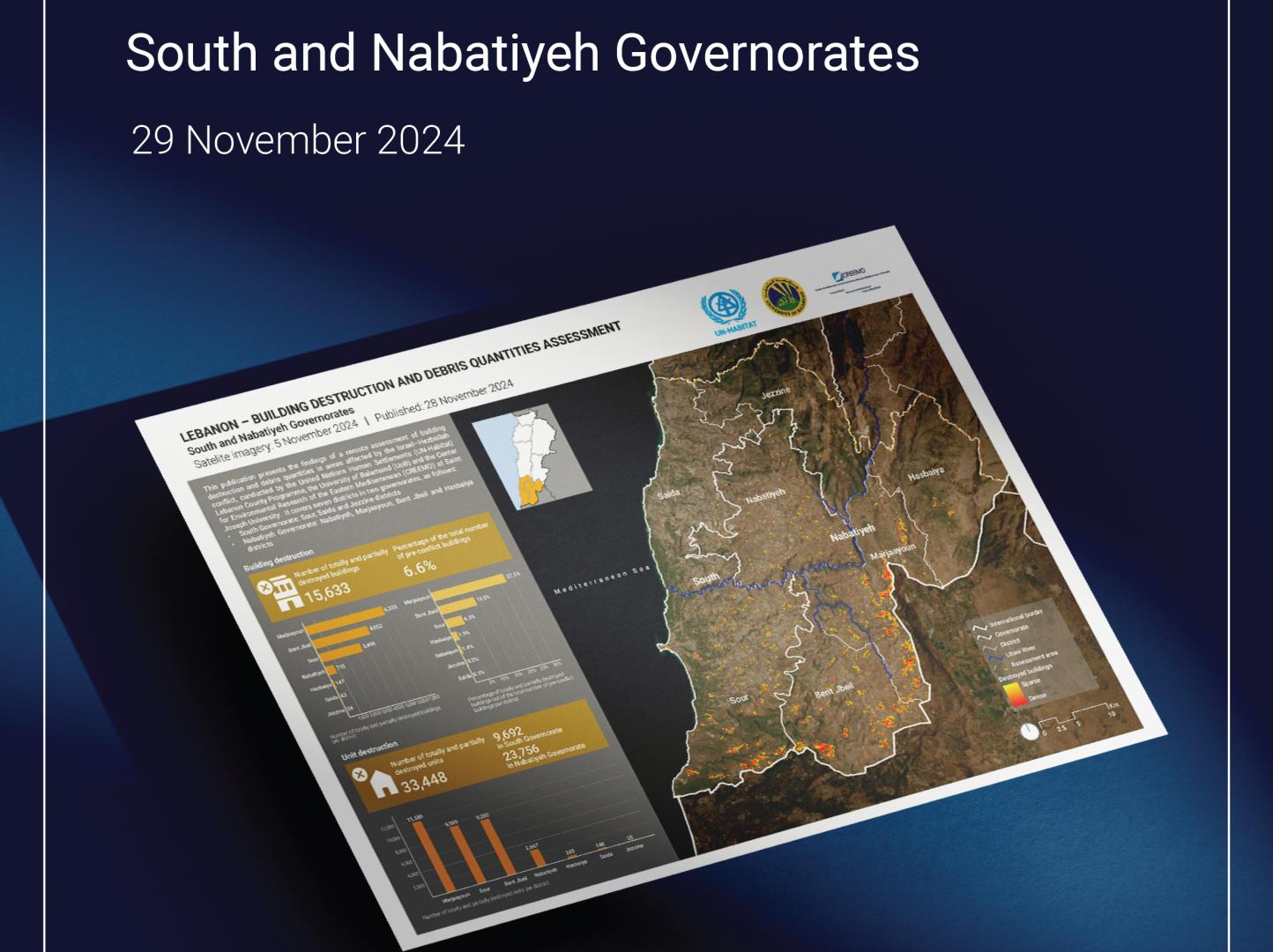United Nations Strategic Framework (UNSF) LEBANON (2017-2020)

The UN and the Government of Lebanon has agreed on a strategy for 2017–2020 to promote a secure, stable and prosperous country.
The United Nations Strategic Framework (UNSF) points out the top priorities of the UN in Lebanon: 1) Peace & Security, 2) Democratic Governance, and 3) Socio-Economic Development. It guides the joint work planning of 23 UN organizations – and it is used to increase coordination, identify needs and empower operations.
The UNSF represents the UN’s cooperation framework with Lebanon for the period 2017–2020. It replaces the previous United Nations Development Assistance Framework (UNDAF) for Lebanon (2010–2016). The UNSF presents the key shared objectives of the UN system, the areas in which it intends to support the Government of Lebanon and its people, and the expected outcomes of its assistance.
In view of the multi-dimensional challenges Lebanon is facing, and the multiple global mandates under which the UN operates, the UN recognizes that an effective response to support Lebanon in maintaining peace, stability and development requires unity of purpose and the integration of strategies and interventions under a common vision: the ‘Whole-of-Lebanon’ approach. The approach calls for a holistic analysis and UN response to Lebanon’s challenges. It proposes leveraging and integrating the UN’s diverse expertise, capacities and resources to support the Government of Lebanon to meet its priorities and manage security, political, governance and socio-economic challenges to stability. The approach also aims to support Lebanon on the path to longer term sustainable development in accordance with the vision, principles and goals of the 2030 Agenda.
Accordingly, the UN’s agreed mission statement is to support ‘a secure, stable and prosperous Lebanon, exercising full sovereignty while respecting, protecting and ensuring the rights of all’. In carrying out this mission, three core priorities – which constitute fundamental preconditions for Lebanon’s long term stability and prosperity – will frame UN system support to the country:
- Core Priority 1: All people in Lebanon have peace and security;
- Core Priority 2: Lebanon enjoys domestic stability and practices effective governance;
- Core Priority 3: Lebanon reduces poverty and promotes sustainable development while addressing immediate needs in a human rights/gender sensitive manner.
While the UNSF provides the overall vision for UN system-wide engagement in country, it will be implemented through the country programmes of its specific UN Agencies, Funds and Programmes, as well as through joint programming in priority areas where it is of strategic importance to leverage a wide range of UN capacities and resources. Progress made against the overall commitments outlined in the UNSF will be jointly monitored by the Government of Lebanon and the United Nations on an annual basis and reviewed at mid-term.
The UNSF was developed by the United Nations system in Lebanon in consultation with national counterparts including line ministries, Government technical offices, civil society organizations, as well as international partners.
The United Nations Strategic Framework (UNSF) identifies three core priorities for the UN in Lebanon 2017–2020. The first priority is peace and security.
Core UN Priority 1: All people in Lebanon have peace and security
Under this priority, the UN intends to help mitigate external threats to Lebanon, strengthen domestic security and law and order and defuse local inter-communal tensions. To mitigate threats to Lebanon’s territorial integrity, this will include support for: strengthening border control, prevention of violent extremism and reinforcing LAF institutional capacities and advocating for continued international support for defending Lebanon against terrorism; all in accordance with humanitarian, human rights principles and Lebanese law and regulations. To strengthen domestic security, interventions planned include supporting internal security forces at national level as well as reinforcing municipal policing at the decentralized level. To defuse inter-communal tensions, efforts foreseen include strengthening capacities of district authorities to monitor local tensions and increase local peace-building/conflict resolution initiatives with a particular focus on preventing youth radicalization through increased community engagement. Communities will also be engaged to ensure women’s interests are addressed consistent with the women’s Peace and Security Agenda. The orientation of the UNSF towards this long-term priority aligns particularly with the 16th sustainable development goal of creating peaceful and inclusive societies.
Core UN Priority 2: Lebanon enjoys domestic stability and practices effective governance
Under this priority, the UN intends to support mechanisms which promote accountability and inclusive participation, including through elections and civil society engagement. The UN further plans to support the strengthening of core executive and legislative capacities of the state, public administration, economic and financial management, national policy-development and statistical and planning capacities. Support will also include strengthening of judicial and human rights institutions, improving prison administration and addressing impunity. The advancement of gender equality and women as well as youth empowerment in political, social and economic spheres will also be prioritized. These efforts are strongly related to: Sustainable Development Goal (SDG) 16 on peaceful and inclusive societies with access to justice and effective, accountable and inclusive institutions, SDG 10 on the reduction of inequality including in terms of political inclusion, as well as to SDG 5 on gender equality and empowerment of women and girls.
Core UN Priority 3: Lebanon reduces poverty and promotes sustainable development while addressing immediate needs in a human rights/gender sensitive manner
Under this priority, the UN will pursue a ‘dual-track’ approach that focuses both on mitigating the impact of the Syrian conflict and addressing pre-existing structural constraints. UN support to address these socio-economic challenges will be provided in three areas. These consist of strengthening productive capacities and generating inclusive growth, improving equitable access and delivery of social services, and promoting environmental protection and effective natural resource management. The planned support of the UN under this heading is directly and indirectly linked to nearly the full range of Sustainable Development Goals.




















